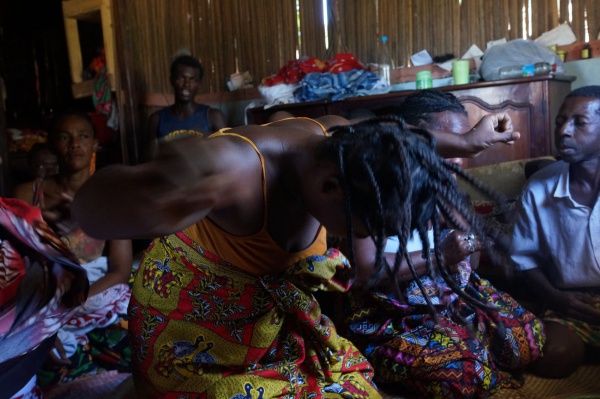Tromba
Tromba, is it a tradition or cult? The answer varies depending on whom you ask. A devout Christian might argue that it is witchcraft. Meanwhile, practitioners of Tromba often attend Sunday church services and follow mainstream religions while also engaging in their Tromba rituals and beliefs.
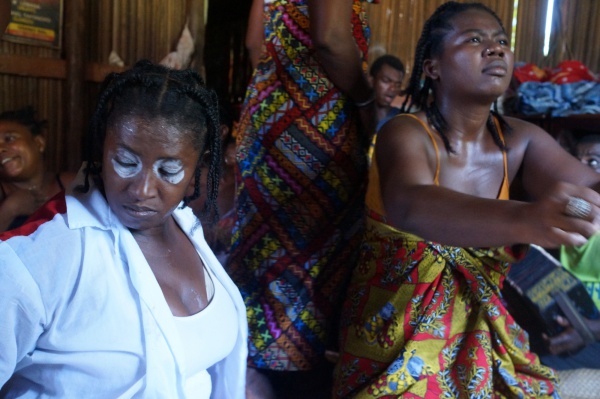
| ||
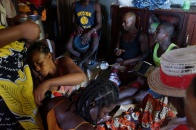
|
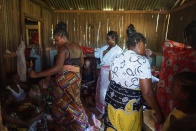
|
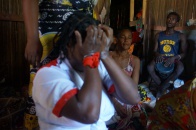
|
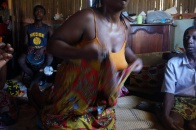
|
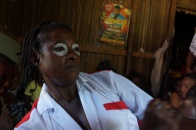
|
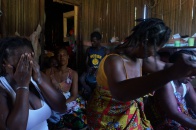
|
The Tromba, or cult of possession, is a ceremony where the spirits of the ancestors are invoked by the living. The “tromba” is an ancestral custom that the populations of the North-West and North-East of Madagascar, Imerina and the South, practice to this day.
A tromba is usually in a specific place dedicated for the purpose. Anyone can attend. The main participants are musicians whose rhythms of drums and accordions encourage the mediums to enter a trance. The audience may be one or more family lines or an entire tribe.
At first, the mediums wear clothes reminiscent of the deceased. Sitting on the ground, in the middle of the audience, they seem elsewhere. They concentrate. As the musical rhythm accelerates, they change their behavior. Then they convulse and thrash around like actors in a horror movie.
Afterwards, they can no longer control their bodies. Their eyes roll back and their voices gradually transform to sound exactly like those of the dead person(s) who inhabit them. Short or long messages then come from the ancestors.
A medium can be inhabited by one or more spirits. It happens that a succession of voices of men or women, children or adults come out of their mouths during the tromba ceremony. Tromba followers believe that the messages emitted by mediums really emanate from the deceased to whom they worship. Whether they are beautiful words, favorite messages or warnings, there is no point in transgressing them. The deceased issued them and we must respect them. The souls of the dead continue to survive and they manifest through the tromba. Even though they are no longer among the living, they still care about their descendants and loved ones. They are worried about the future of their compatriots and their country. Therefore, it is essential to consult the deceased from time to time through the tromba to ask them for advice.
